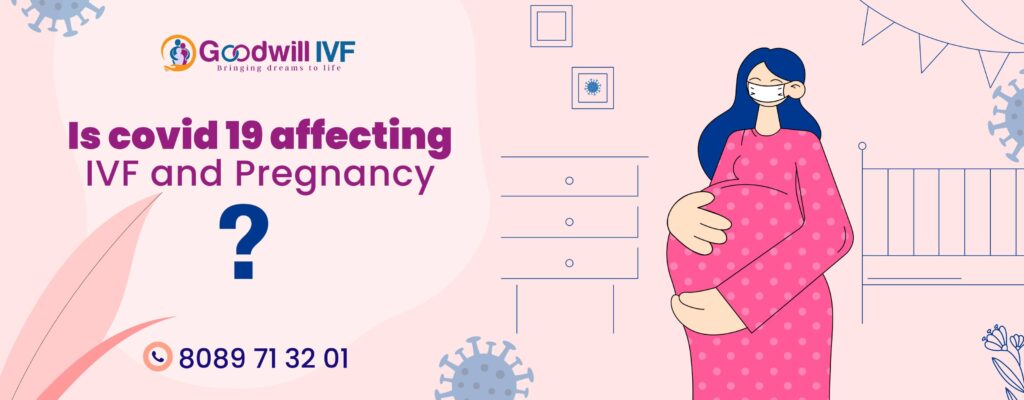Is Infertility Affected by Yeast Infection? At least one episode of vaginal yeast infection occurs in up to 75% of women throughout their lives, and many have up to two. The main cause of this neglect is a lack of information, advice, and direction. Numerous patients who don’t cure their yeast infections suffer from a variety of negative effects. But can a yeast infection lead to infertility? The fact is that you need to consult and get an expert opinion from any IUI center in Kerala, initially. The intensity of a yeast infection, which in turn varies with each person’s health, determines how negatively affected fertility will be. Before concluding, it’s critical to ascertain whether a person has a yeast infection or any illness that can be affecting their fertility.
Vaginal Yeast infections: What Are They?
Women are more likely to have yeast infections or candidiasis because of a fungus or microbe called candida, which upsets the body’s natural balance and creates an excess of yeast cells. Bacteria and yeast cells are often present in good numbers in the vagina. Additionally, the vaginal environment normally harbours the bacteria lactobacillus and candida. The beneficial bacterium, lactobacillus is in charge of controlling the growth of candida. However, when there is an imbalance, the yeast cells begin to grow, which causes an infection. Around 92% of yeast infections are caused by a form of pathogenic yeast called Candida albicans.
Understanding Yeast Infection:
The symptoms of vaginal yeast infection, which is brought on by fungi, include irritation, itching, inflammation, and foul-smelling discharge. Although this fungus is already present in the body, its growth can make symptoms worse. In reality, up to 50% of women are infected yet show no signs of having the disease.
Vaginal Yeast infection: causes
- Antibiotics may destroy the beneficial bacteria that protect the vagina or alter its normal bacterial balance.
- Steroids may negatively impact the vagina’s normal bacterial environment.
- Diabetes uncontrolled/high blood sugar condition can lower the amount of glycogen in vaginal cells and increase the pH balance there, which makes the vagina more prone to fungus infections.
- An unhealthy immune system can be hampered by illnesses like HIV/AIDS, chemotherapy, and powerful medications.
- Vaginal insertions may result in wounds that let germs and fungi into circulation.
- Hormone levels can be affected by ovulation, menopause, pregnancy, hormone treatment, and birth control pills.
Yeast infection: symptoms
The signs of a yeast infection might resemble those of other vaginal illnesses, so it’s crucial to have a proper diagnosis before starting any therapy.
- Itching: Depending on how serious the problem is, the vulva may itch in a mild to severe way.
- Vaginal discharge: A thick, clumpy, white discharge that smells yeasty or like bread.
- Inflammation: An irritated or reddened vulva that is inflammatory.
- Burning: Pain during urination or sexual intercourse.
- Rashes: Swelling, Pain, or redness in the area around the vagina.
Does a Yeast Infection Cause Infertility?
Women who are hoping to conceive and have a yeast infection may be curious as to whether they may do so. There is no reason to worry because there is inconclusive data linking yeast infections to infertility in women, so you can conceive even if you have one. However, sex can be unpleasant and uncomfortable due to the symptoms of yeast infections, which include discomfort, swelling, irritability, and burning sensations. Therefore, a woman with a yeast infection may not be motivated to have sexual relations. Also, frequent yeast infections can produce a hostile environment for the sperm, making conception difficult.
A sporadic and readily treatable yeast infection is probably not going to affect your fertility. It could only have an impact on you if it reduces your desire for sexual activity. However, persistent yeast infections can make it more difficult for sperm to enter the uterus by altering the normal vaginal environment and the consistency of cervical mucus. It can cause infertility in extreme circumstances, necessitating further fertility therapy. Being infection-free is crucial to keep in mind when trying to conceive a child because the ailment can not only spread to your spouse but also the unborn child.
Reduce the Effects of Yeast Infection
Diet modifications:
Stay away from refined grains, sweets, and alcohol totally while receiving therapy because they can all contribute to fostering the growth of fungal infections. To boost immunity and fight off microorganisms, consult your doctor about taking a probiotic and multivitamin supplement.
Medications:
You may use a variety of natural therapies to lessen the consequences. Ask your gynecologist about any topical treatments you could take to ease your discomfort. Put a stop to the melancholy emanating from your genital area and spare yourself the discomfort and awkwardness of a yeast infection.
Here are a few other lifestyle changes that might help you:
- Make sure the region around your genitalia is well-washed and dried.
- Avoid using body powders, washes, sprays, and lotions that are aromatic or perfumed which might make yeast infections worse.
- Tampons and other forms of contraception should not be used if a yeast infection is present.
- Avoid hot baths and douching since they might destroy the vagina’s natural flora.
- To prevent excessive perspiration, moisture entrapment, and discomfort to the sensitive area, avoid wearing tight-fitting undergarments or shorts.
After all, if issues persist while trying to conceive, you should consult a reliable IVF center in Calicut and know more about your condition. Experts suggest a cure for this when treated properly and timely.


